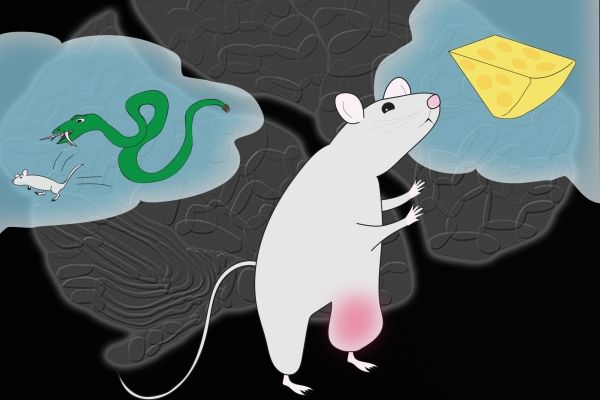Pain can be valuable. Without it, we might let our hand linger on a hot stove, for example. But longer-lasting pain, such as the inflammatory pain that can arise after injury, can be debilitating and costly, preventing us from completing important tasks. In natural settings, the lethargy triggered by such pain could even hinder survival.
According to research by University of Pennsylvania neuroscientists, the brain has a way to suppress chronic pain when an animal is hungry, allowing it to go look for food while leaving intact the response to acute pain. Their work pinpointed a tiny population of 300 brain cells responsible for the ability to prioritize hunger over chronic pain, a group of neurons that may offer targets for novel pain therapies.
“In neuroscience we’re very good about studying one behavior at a time,” says J. Nicholas Betley, an assistant professor of biology in Penn’s School of Arts and Sciences. “My lab studies hunger, and we can find neurons that make you hungry and manipulate those neurons and monitor their activity. But in the real world, things aren’t that simple. You’re not in an isolated situation where you’re only hungry. This research was to try to understand how an animal integrates multiple needs to come to a behavioral conclusion that is optimal.”
“We didn’t set out having this expectation that hunger would influence pain sensation so significantly,” says Amber Alhadeff, a postdoctoral researcher, “but when we saw these behaviors unfold before us, it made sense. If you’re an animal, it doesn’t matter if you have an injury, you need to be able to overcome that in order to go find the nutrients you need to survive.”
Read more at University of Pennsylvania
Image: Being hungry shuts of perception of chronic pain. (Credit: University of Pennsylvania)


